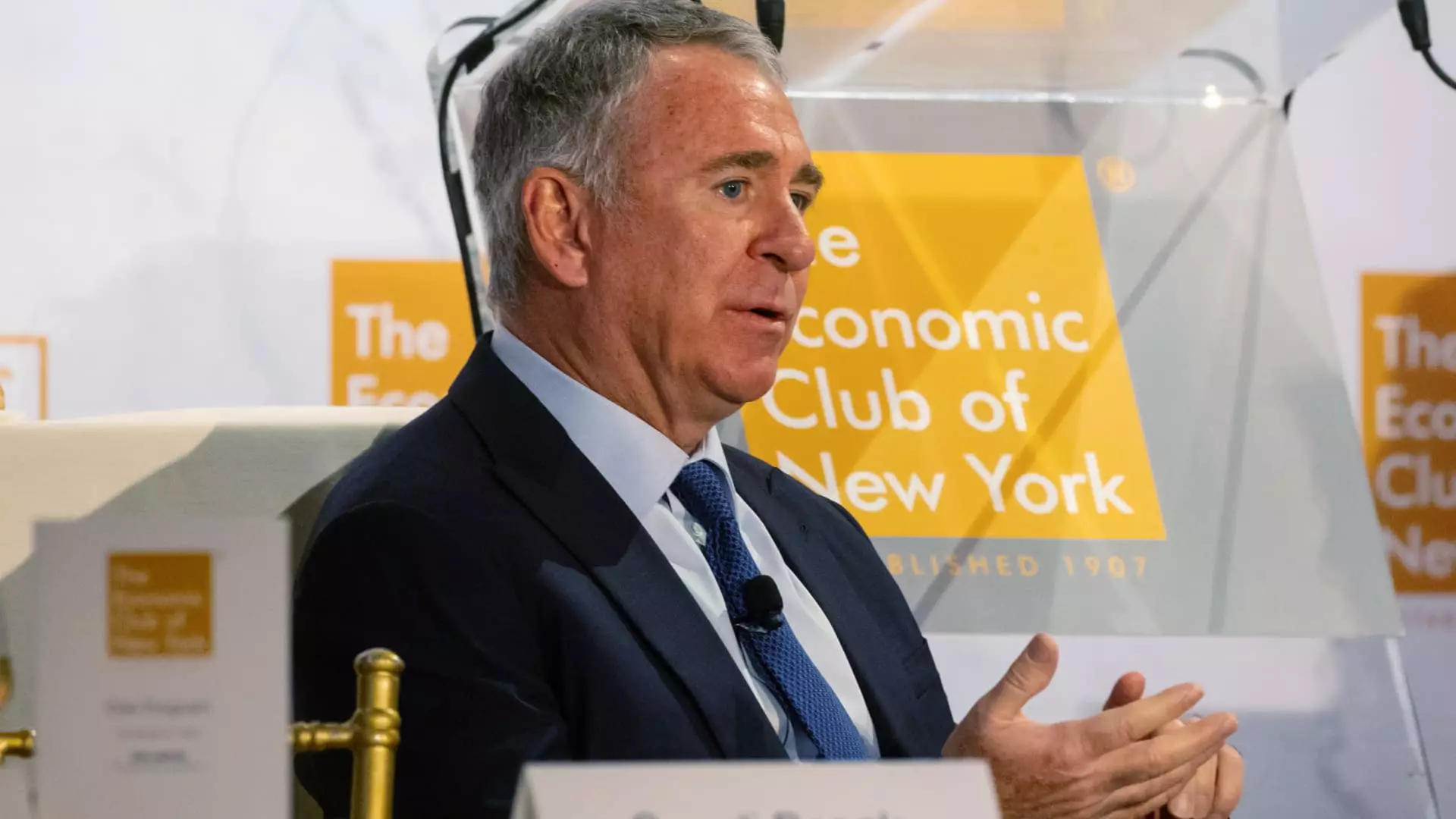Ken Griffin, the CEO of Citadel, recently voiced his profound concerns regarding the steep tariffs proposed by President-elect Donald Trump. In a thought-provoking appearance at the Economic Club of New York, Griffin pointed out the potential spiral towards crony capitalism—a scenario where economic success relies more on government relationships than on market competition. His insights suggest that while the imposition of tariffs may benefit domestic businesses in the short term by shielding them from foreign competition, the long-term consequences could be detrimental, diminishing overall productivity and competitiveness within American companies.
Tariffs, particularly those set at alarmingly high rates, create an environment where domestic firms may find themselves insulated from the rigors of international markets. Griffin highlighted that “the same companies that enjoy that momentary sugar rush” from reduced competition typically succumb to complacency. This complacency can lead to deterioration in innovation and responsiveness to consumer needs, adversely affecting the very economy that the tariffs aim to protect.
Trump’s tariffs, including a 20% tax on imports from various nations and a staggering 60% on Chinese goods, underscore a protectionist approach that could reshape the landscape of American free trade. Griffin warns that such policies could inadvertently result in higher prices for consumers, compounding the headaches that arise following the pandemic’s inflationary shock. By shielding inefficient industries from competition, tariffs invite a host of lobbyists and special interest groups vying for commercial favor at the expense of broader economic health.
In this context, the term “crony capitalism” becomes more pertinent than ever. The notion suggests that economic advantages may be disproportionately awarded to those businesses able to leverage government connections, encouraging a system that favors certain players rather than fostering true market efficiency. This dynamic often stifles innovation and allows poorly performing companies to survive on the coattails of government intervention rather than competitive merit.
Aside from discussing tariffs, Griffin also touched on Citadel’s future direction, stating that the organization is not eyeing an initial public offering anytime soon. Emphasizing a strategy focused on sustained growth and adaptability, Griffin believes there are considerable benefits to remaining privately held as the market landscape continues to evolve. This perspective sheds light on the notion that a business well-rooted in its foundational structure may navigate turbulent economic waters more effectively than those tethered to public scrutiny and the fluctuating demands of shareholders.
This dual narrative of tariffs and corporate strategy exemplifies the nuanced conversations happening within American economic circles. The warnings issued by Griffin serve as a valuable contemplation for both policymakers and entrepreneurs. In our rapidly transforming economy, reliance on protective measures could ultimately hinder competitive spirit, thus undermining the potential for American businesses to thrive, innovate, and provide for the consumers they serve.
As the specter of crony capitalism looms, it is critical for both government and business leaders to carefully evaluate the long-term repercussions of their economic policies to foster a robust, innovative, and truly competitive marketplace.

